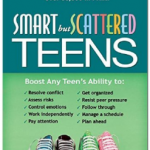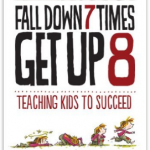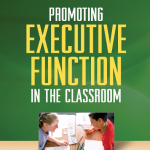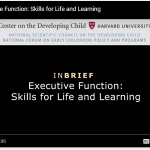Click here to REGISTER for the Multidisciplinary Educator All-Day Session!
 Grade Levels: 3-8
Grade Levels: 3-8
Description:
Sarah Ward, MS, CCC-SLP, is a practicing speech-language pathologist and national speaker on developing and supporting executive functioning skills. Sarah led a session at Oakland Schools in March 2014 and will be back to facilitate a one-day multidisciplinary session that provides practical, hands-on strategies to build executive function skills for success in the classroom. She will also present an evening session designed to support parents in working with their children on homework.
The term ‘Executive Function’ is used to describe the skill set required for setting goals, carrying out organized steps, and modifying a plan to complete a task successfully, all of which are vital for academic and social success in elementary and middle school classrooms. Sarah’s multidisciplinary session will focus on strategies that help students:
- Increase their awareness and tune in to what is happening around them so they can understand how information, events and their actions will impact their goals and objectives, both now and in the near future.
- Develop a memory for the future so that they can set personal goals and use self-initiated organizational strategies to achieve those goals.
- Improve self-awareness skills so they can “read a room” and use higher-order reasoning skills to “stop, think and create” an appropriate action plan with anticipated possible outcomes.
- See and sense the passage of time so that they can accurately and effortlessly estimate how long tasks will take, change or maintain their pace, and carry out routines and tasks within allotted time frames.
- Organize their homework space and personal belongings so they can create and use strategies to track and organize their materials.
Sarah’s parent session will focus on simple techniques that parents can use to help their students:
- Close the homework circle by supporting students in recording, bringing home, completing and returning assignments.
- Create a positive and productive environment for homework completion.
- Learn to organize and process information for assignments, long term projects and study skills.
Dates and Times:
Multidisciplinary Session for Educators: January 19, 2016 (9:00 am – 3:30 pm)
Parent Session: January 20, 2016 (7:00 pm – 9:00 pm)
Intended Audience:
Multidisciplinary Session for Educators:
3rd- 8th Grade: General Education Teachers, Speech-Language Pathologists, School Psychologists, School Counselors, School Social Workers, and Special Education Teachers
Parent Session:
Parents of students in Grades 3-8 who struggle to complete homework
Consultant Contacts: Michele Farah Ph.D. , Literacy Consultant, Oakland Schools and Diane Katakowski, Speech-Language Pathologist Consultant, Oakland Schools
Event Contact:
Angela Emig, [email protected], (248) 209.2351
To hear Sarah describe some of her strategies, check out her short video clips:
Strategies for Middle School Students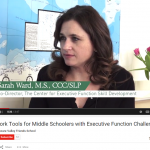
Tools for Middle and High School Students
Resources for Parents
Parent Tips
“One of the best presentations I have attended through Oakland Schools! I appreciated the practical tips for use with a wide age range of students. Please bring Sarah back- this information would be so helpful for classroom teachers!” – Past Participant at Oakland Schools

